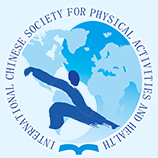Document Type
Abstract
Keywords
physical inactivity, management disposition, mobile phone addiction
Publication Date
8-1-2022
Abstract
The purpose of this study was to analyze the impact of time management disposition on mobile phone addiction, explore the mediating role of self-esteem, and examine the differences between active and inactive college students in this mediating role. 887 college students participated in this study with valid measures. According to physical activity rating scale (PARS-3), students who met the recommendations of the World Health Organization's Global recommendations on physical activity for health were categorized into active groups while the others were inactive group. The data was subjected to mediation model testing and multi-group comparison using Amos 21.0. The proportion of physical inactivity of college students was as high as 66.76%, there were significant differences between active and inactive college student in time monitoring concept, time efficacy, self-esteem, withdrawal symptoms, prominent behavior, social comfort and mood change. Each dimension of time management disposition was significantly negatively correlated with each dimension of mobile phone addiction, and was significantly positively correlated with self-esteem. Self-esteem was significantly negatively correlated with all dimensions of mobile phone addiction. According to the model test, the data fitted the hypothesized model well. In the whole sample model and active group model, self-esteem played a partial mediating role. In the inactive college student group, the exercise value cognition played a part of mediating role. Multi-group analysis found that the moderating effect of active or not was not significant. Self-esteem played a part of mediating role in the influence of time management disposition on mobile phone addiction. The findings suggest that persistent participation in physical activity help students to improve time management ability and reduce mobile phone dependence and even addiction. Future research needs to explore more influential factors for promoting college students' physical and mental health.
DOI
https://doi.org/10.18122/ijpah.1.2.10.boisestate
Recommended Citation
Wu, Ming; Yang, Jian; Yuan, Yuan; and Zhang, Yuan
(2022)
"College Students’ Time Management Disposition, Self-Esteem and Mobile Phone Addiction: A Moderate Mediation Model,"
International Journal of Physical Activity and Health: Vol. 1:
Iss.
2, Article 10.
DOI: https://doi.org/10.18122/ijpah.1.2.10.boisestate
Available at:
https://scholarworks.boisestate.edu/ijpah/vol1/iss2/10
Included in
Exercise Science Commons, Health and Physical Education Commons, Public Health Commons, Sports Studies Commons


